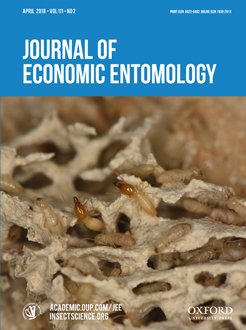Assessments of acute insecticide toxicity frequently focus on the lethal effects on individual arthropod pest species and populations neglecting the impacts and consequences of sublethal exposure. However, the sublethal effects of insecticides may lead to harmful, neutral, or even beneficial responses that may affect (or not) the behavior and sexual fitness of the exposed insects. Intriguingly, little is known about such effects on stored product insect pests in general and the maize weevil in particular.Thus, we assessed the sublethal effects of spinosad and deltamethrin on female mate-searching, mating behavior, progeny emergence, and grain consumption by maize weevils. Insecticide exposure did not affect the resting time, number of stops, and duration of mate-searching by female weevils, but their walking velocity was compromised. Maize weevil couples sublethally exposed to deltamethrin and spinosad exhibited altered reproductive behavior (walking, interacting, mounting, and copulating), but deltamethrin caused greater impairment. Curiously, higher grain consumption and increased progeny emergence were observed in deltamethrin-exposed insects, suggesting that this pyrethroid insecticide elicits hormesis in maize weevils that may compromise control efficacy by this compound. Although spinosad has less of an impact on weevil reproductive behavior than deltamethrin, this bioinsecticide also benefited weevil progeny emergence, but did not affect grain consumption.Therefore, our findings suggest caution using either compound, and particularly deltamethrin, for controlling the maize weevil, as they may actually favor this species population growth when in sublethal exposure requiring further assessments.The same concern may be valid for other insecticides as well, what deserves future attention.
How to translate text using browser tools
20 January 2018
Spinosad- and Deltamethrin-Induced Impact on Mating and Reproductive Output of the Maize Weevil Sitophilus zeamais
Mayra Vélez,
Lorena L. Botina,
Leonardo M. Turchen,
Wagner F. Barbosa,
Raul Narciso C. Guedes
ACCESS THE FULL ARTICLE
It is not available for individual sale.
This article is only available to subscribers.
It is not available for individual sale.
It is not available for individual sale.

Journal of Economic Entomology
Vol. 111 • No. 2
April 2018
Vol. 111 • No. 2
April 2018
biopesticide
grain consumption
hormesis
insecticides
progeny production




